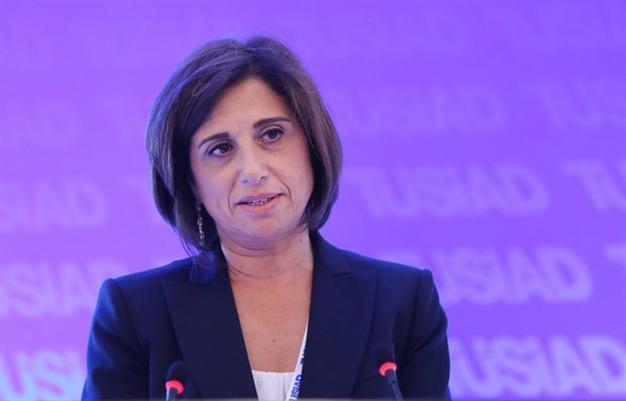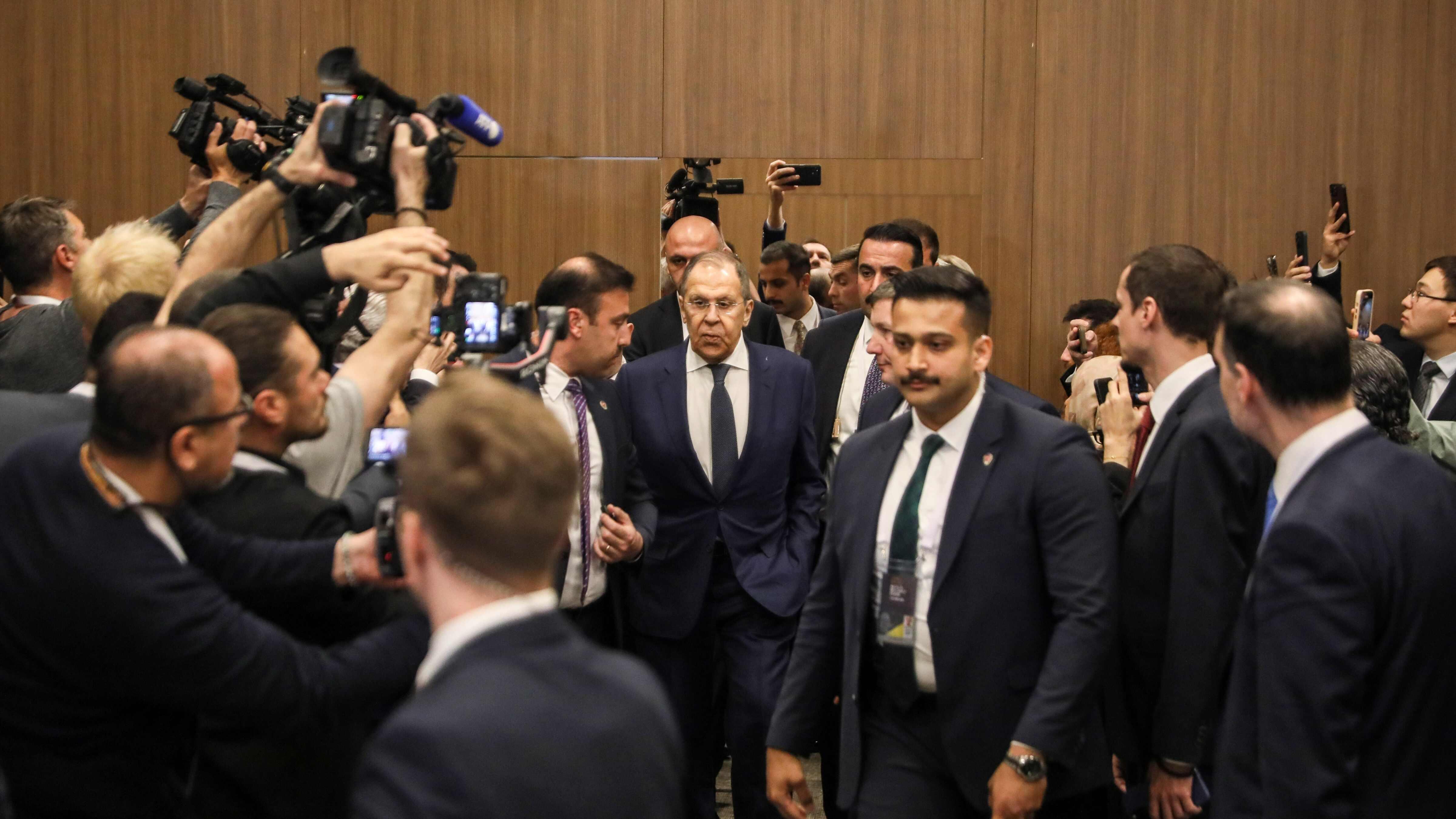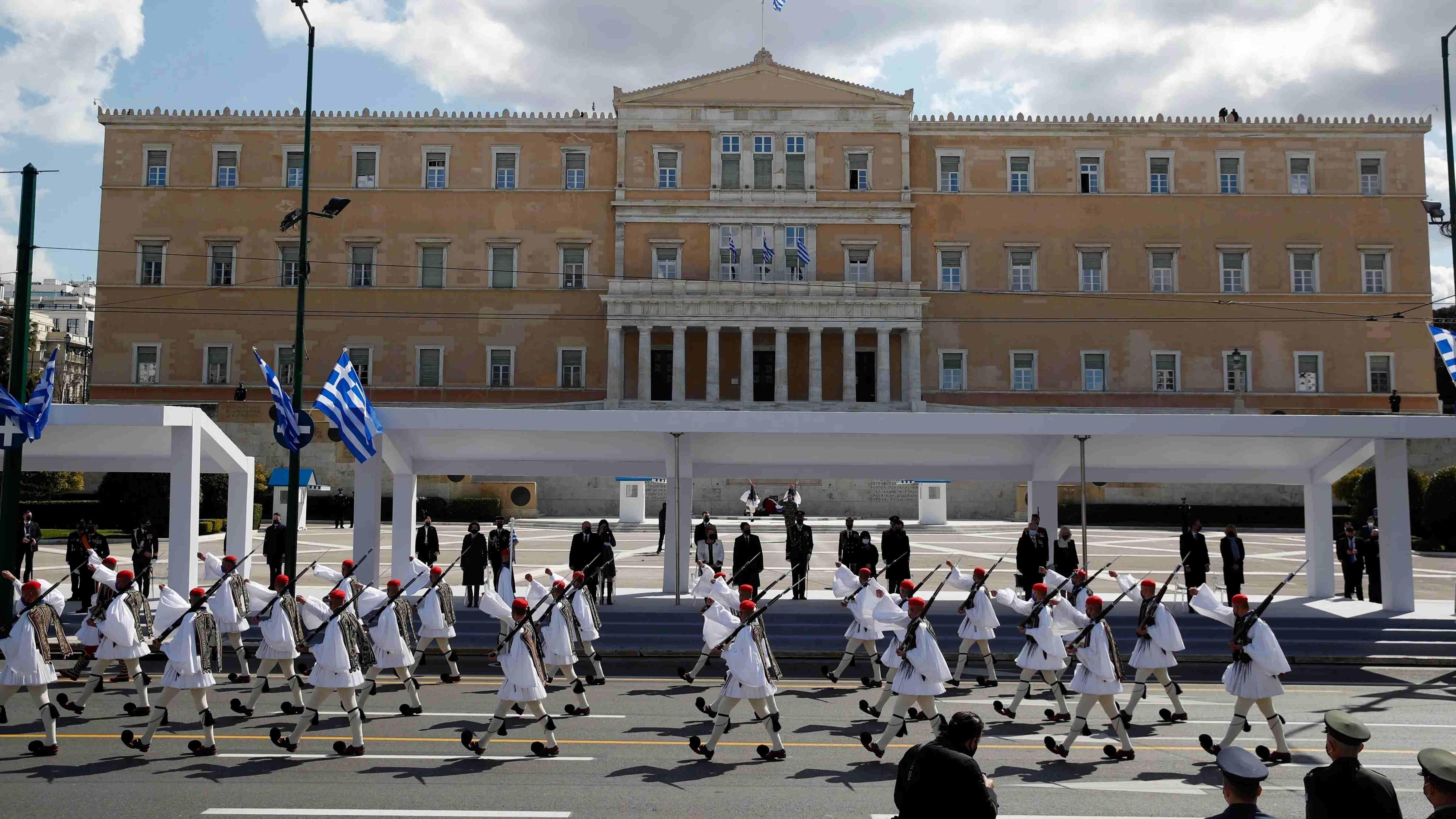Top bosses want election security, democracy
ISTANBUL

AA photo
Turkey’s top business organization has called for the maintenance of election security and reforms to ensure a more developed democracy just ahead of another election on Nov. 1 amid political uncertainties, market fluctuations and escalating security risks.“Our first expectation from politicians is to enable the upcoming elections to be held in a secure environment. We hope our political parties and leaders will avoid any polarizing discourses and hold election rallies in a responsible and prudential way for the interests of our country just ahead of the upcoming elections. We want to see policy proposals which will raise the democratic and development standards of our country,” said the head of Turkish Industry and Business Association (TÜSIAD), Cansen Başaran-Symes, during a speech at the group’s High Advisory Council (YİK) meeting in Istanbul on Sept. 17.
“We also want to address a need for a new constitution, a social contract, which puts the individual at the center for a more advanced democracy once more,” she noted.
“Whatever the results of the upcoming [Nov. 1] parliamentary elections are, as representatives of the business world, we have many expectations from politicians. We expect the prospective government, whether a majority government or a coalition government, to put the markets and Turkey’s economy at the top of agenda and to take democratization steps as soon as possible,” she noted.
The business world wants the maintenance of inner security and the rule of law across the country, she said, adding that TÜSİAD strongly condemned terrorist attacks.
The country entered the June 7 elections in an unstable and tense environment, she said.
“The polls, however, signaled that social polarization must be avoided. Representation of around 98 percent gave great hope after the elections. While society’s message was that clear, we are now moving toward another election in November,” she said.
Başaran-Symes said TÜSİAD had strongly backed the establishment of a coalition government after the June polls as such a government could have taken the required reconciliatory steps to end unhealthy social polarization in Turkey.
“If a strong government had been established, it could have found better solutions to the democracy problems we are all facing today – for instance by making the required structural reforms,” she said, adding that the economic conditions across emerging countries had been deteriorating, including Turkey.
“Instead of finding solutions to offset [problems with] economic productivity and educational levels and decrease inflation rates, another election period was unfortunately chosen. This threatens our macroeconomic balances,” said Başaran-Symes, adding that political and economic affairs could not be separated from each other.
TÜSİAD’s head also said she knew the group’s members were upset at Turkey’s current problems, mainly due to terrorist attacks, while cautioning that no one had the luxury to sink into despair.
‘Civil life under threat’
YİK President Tuncay Özilhan said Turkey had seen a substantial transformation in the last 10-15 years, enabling all social segments to take advantage.
“These gains, however, are under risk now. What happens dramatically in southeastern and eastern Turkey has threatened civilian life and the civilian administration. It is not easy to cope with that much trouble.
While there are too many problems, we have now entered into a new election period,” he said, underlying the deteriorating investment figures, the loss in the Turkish Lira’s value amid an expected rate hike decision by the U.S. Federal Reserve (Fed) and the lack of a reform agenda in Turkey.
The business world needs more than monetary subsidies or suitable interest rate levels, he said. “Turkey has already completed a growth process mainly upon montage and assembling industries. We need to return to a sustainable free market track to grow.”
Özilhan noted that sustainable growth can be built through a democratic approach that has well-functioning democratic institutions.
“Attaining a more developed economy will enable Turkey to overcome the existing vicious circle,” he said, adding that Turkey needed to resolve domestic problems immediately as there was no room for new problems.
“Turkey had great opportunities in 2010 and 2011. If we had taken advantage of these opportunities then, we would have better economic dynamics and lower current account gap levels [now],” Özilhan said, adding that the targets for the country’s centennial in 2023 and the vision of accession to the European Union could give the country a feeling of togetherness once more.
“We have seen historical days in Turkey … We all need to support each other. If Turkey had been very determined in becoming an EU member after 1999, Turkey could have become a country in which all today’s problems could be resolved upon public demand, while we wouldn’t have been lagging behind the countries that pushed the same button to become an EU member then,” he said.
“What our main request from all political parties is to show the determination to resolve all current problems through democratization,” he said, adding that this would cool down tensions in the country.
'We hope to see Memduh Boydak back among us'
Turkish Industry and Business Association (TÜSİAD) head Cansen Başaran Symes said they hope to see Boydak Holding CEO Memduh Boydak, one of its executive board members who was controversially detained by police on Sept. 16, back among them soon.
“Unfortunately, a full complement of our executive board cannot be present in this meeting. But we hope to see our executive board member Memduh Boydak back among us as soon as possible,” said Symes, speaking at the High Advisory Council meeting in Istanbul, adding that they “felt the absence of Boydak” at the meeting.
Boydak was among the detainees on Sept. 16 in the Central Anatolian province of Kayseri including executives of a group of companies and university officials, as part of an operation targeting the “Pro-Fethullah Terror Organization,” referring to the movement of U.S.-based Islamic scholar Fethullah Gülen, an ally-turned-nemesis of President Recep Tayyip Erdoğan and the Justice and Development Party (AKP).
TÜSİAD also issued a statement expressing concern over the detention of Boydak, urging a halt to the “darkening atmosphere” threatening business in Turkey.
“Memduh Boydak is a reputable and well-respected member of the Turkish business world. We hope to see him back among us after he is cleared of all charges,” TÜSİAD stated on Sept. 16.
















